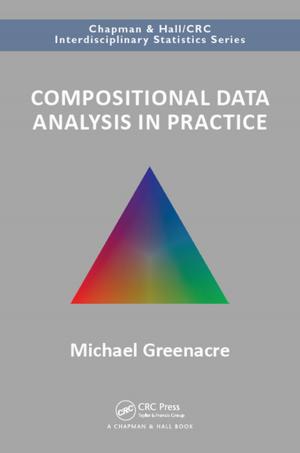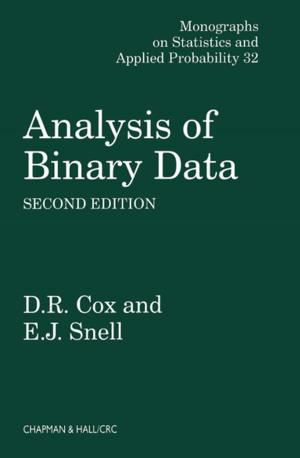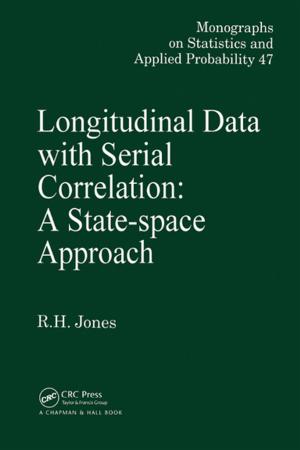Reinforcement Learning for Cyber-Physical Systems
with Cybersecurity Case Studies
Nonfiction, Computers, Advanced Computing, Theory, Entertainment & Games, Game Programming - Graphics, Networking & Communications, Computer Security| Author: | Chong Li, Meikang Qiu | ISBN: | 9781351006606 |
| Publisher: | CRC Press | Publication: | February 22, 2019 |
| Imprint: | Chapman and Hall/CRC | Language: | English |
| Author: | Chong Li, Meikang Qiu |
| ISBN: | 9781351006606 |
| Publisher: | CRC Press |
| Publication: | February 22, 2019 |
| Imprint: | Chapman and Hall/CRC |
| Language: | English |
Reinforcement Learning for Cyber-Physical Systems: with Cybersecurity Case Studies was inspired by recent developments in the fields of reinforcement learning (RL) and cyber-physical systems (CPSs). Rooted in behavioral psychology, RL is one of the primary strands of machine learning. Different from other machine learning algorithms, such as supervised learning and unsupervised learning, the key feature of RL is its unique learning paradigm, i.e., trial-and-error. Combined with the deep neural networks, deep RL become so powerful that many complicated systems can be automatically managed by AI agents at a superhuman level. On the other hand, CPSs are envisioned to revolutionize our society in the near future. Such examples include the emerging smart buildings, intelligent transportation, and electric grids.
However, the conventional hand-programming controller in CPSs could neither handle the increasing complexity of the system, nor automatically adapt itself to new situations that it has never encountered before. The problem of how to apply the existing deep RL algorithms, or develop new RL algorithms to enable the real-time adaptive CPSs, remains open. This book aims to establish a linkage between the two domains by systematically introducing RL foundations and algorithms, each supported by one or a few state-of-the-art CPS examples to help readers understand the intuition and usefulness of RL techniques.
Features
-
Introduces reinforcement learning, including advanced topics in RL
Applies reinforcement learning to cyber-physical systems and cybersecurity
Contains state-of-the-art examples and exercises in each chapter
Provides two cybersecurity case studies
Reinforcement Learning for Cyber-Physical Systems with Cybersecurity Case Studies is an ideal text for graduate students or junior/senior undergraduates in the fields of science, engineering, computer science, or applied mathematics. It would also prove useful to researchers and engineers interested in cybersecurity, RL, and CPS. The only background knowledge required to appreciate the book is a basic knowledge of calculus and probability theory.
Reinforcement Learning for Cyber-Physical Systems: with Cybersecurity Case Studies was inspired by recent developments in the fields of reinforcement learning (RL) and cyber-physical systems (CPSs). Rooted in behavioral psychology, RL is one of the primary strands of machine learning. Different from other machine learning algorithms, such as supervised learning and unsupervised learning, the key feature of RL is its unique learning paradigm, i.e., trial-and-error. Combined with the deep neural networks, deep RL become so powerful that many complicated systems can be automatically managed by AI agents at a superhuman level. On the other hand, CPSs are envisioned to revolutionize our society in the near future. Such examples include the emerging smart buildings, intelligent transportation, and electric grids.
However, the conventional hand-programming controller in CPSs could neither handle the increasing complexity of the system, nor automatically adapt itself to new situations that it has never encountered before. The problem of how to apply the existing deep RL algorithms, or develop new RL algorithms to enable the real-time adaptive CPSs, remains open. This book aims to establish a linkage between the two domains by systematically introducing RL foundations and algorithms, each supported by one or a few state-of-the-art CPS examples to help readers understand the intuition and usefulness of RL techniques.
Features
-
Introduces reinforcement learning, including advanced topics in RL
Applies reinforcement learning to cyber-physical systems and cybersecurity
Contains state-of-the-art examples and exercises in each chapter
Provides two cybersecurity case studies
Reinforcement Learning for Cyber-Physical Systems with Cybersecurity Case Studies is an ideal text for graduate students or junior/senior undergraduates in the fields of science, engineering, computer science, or applied mathematics. It would also prove useful to researchers and engineers interested in cybersecurity, RL, and CPS. The only background knowledge required to appreciate the book is a basic knowledge of calculus and probability theory.















